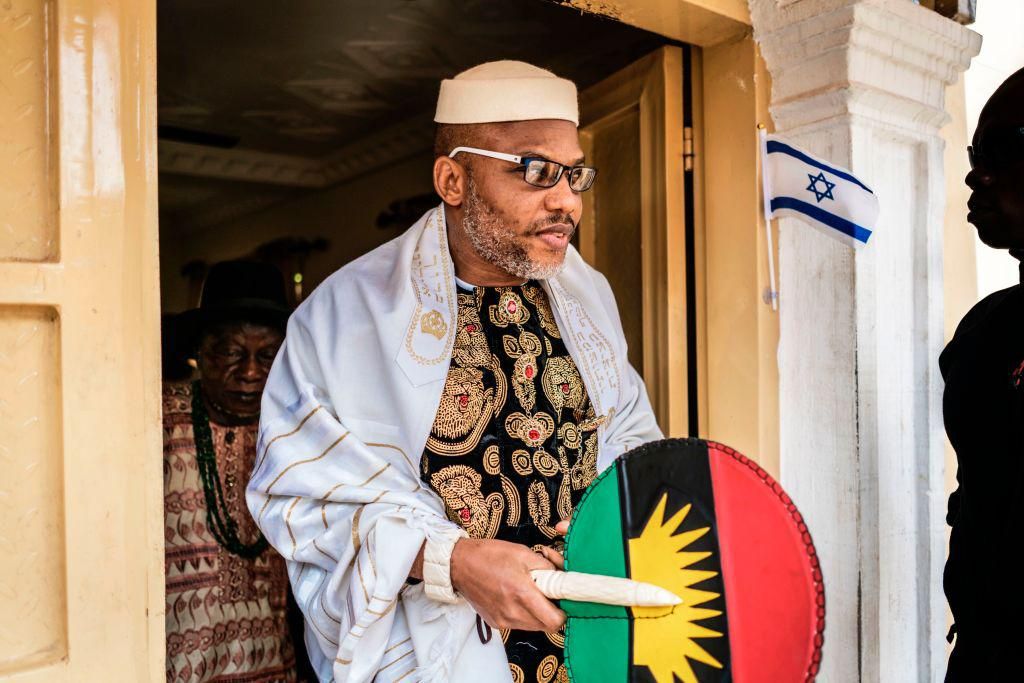Nigerian Authorities Arrest Biafran Leader Nnamdi Kanu
After labelling the Indigenous People of Biafra a 'terrorist organisation', the Nigerian authorities have arrested its leader Nnamdi Kanu.
Nnamdi Kanu, the leader of the Indigenous People of Biafra (IPOB), has recently been arrested by the Nigerian authorities. Authorities have labelled the separatist movement a "terrorist organisation", according to reports, because of their desire for part of southeastern Nigeria (formerly Biafra) to break away from the rest of the country. Kanu is reportedly being held in the capital city of Abuja where he is awaiting trial. He currently has 11 charges levelled against him including "engaging in subversive activities."
READ: Biafra: Nigeria Has Failed To Learn From Past Mistakes
Following Kanu's disappearance back in 2017, his whereabouts have been unclear till now. The Guardian reports that he was initially arrested in Nigeria in 2015 but then fled the country after being granted bail in 2017. According to the Attorney General and Justice Minister, Abubakar Malami, Kanu was apprehended through "collaborative efforts of the Nigerian intelligence and security services," Reuters reports. Additionally, an attorney for the IPOB, Ifeanyi Ejiofor, has released a statement on social media calling on the Nigerian government to ensure Kanu's safety as well as a "fair hearing/trial which is his constitutionally protected right."
The IPOB and Kanu, have continued to observably agitate the Nigerian government and especially, President Muhammadu Buhari. At the beginning of this month, President Buhari tweeted that "those misbehaving" would be dealt with in "the language they will understand" — a reference to security challenges in South-East Nigeria. After the tweet was deleted, Nigeria went on to issue a nationwide and controversial ban on Twitter, with threats of imprisoning citizens circumventing the ban.
Over the past years, and before his recent arrest, Kanu was broadcasting from his Radio Biafra station in London. In this way, he kept the spirit and the ideal that is Biafra, a separate and sovereign territory for Igbo people, alive and burning back home. The Biafran War of 1966 saw the murder of at least 30 000 Igbo people as a result of ethnic cleansing and the death of over a million people as a result of starvation. It remains the most divisive event to happen in Nigeria post-Independence.
- Biafra: Nigeria Has Failed To Learn From Past Mistakes - OkayAfrica ›
- Deeper Than The Headlines: Biafra, Football, Victoire Ingabire + ... ›
- Chimamanda Ngozi Adichie's Biafra Novel Snags 'Winner of ... ›
- Deeper Than The Headlines: Chimamanda Adichie's Tribute, Violence in the DRC + 16 Days of Activism - Okayplayer ›
